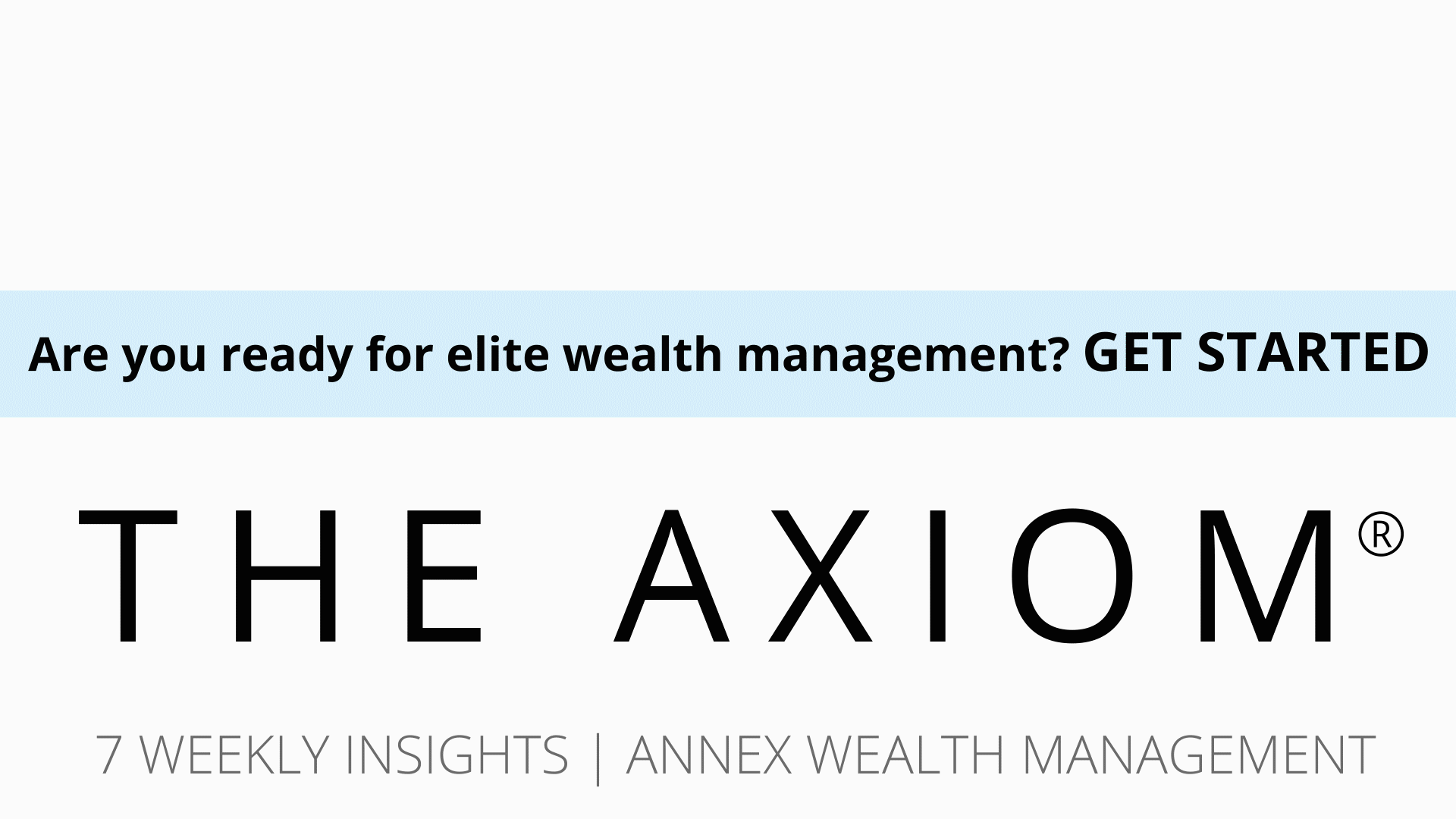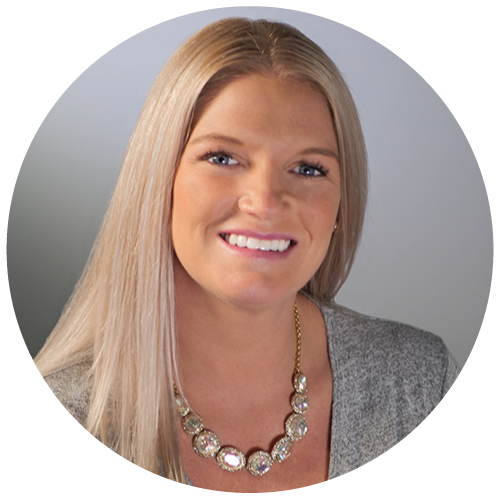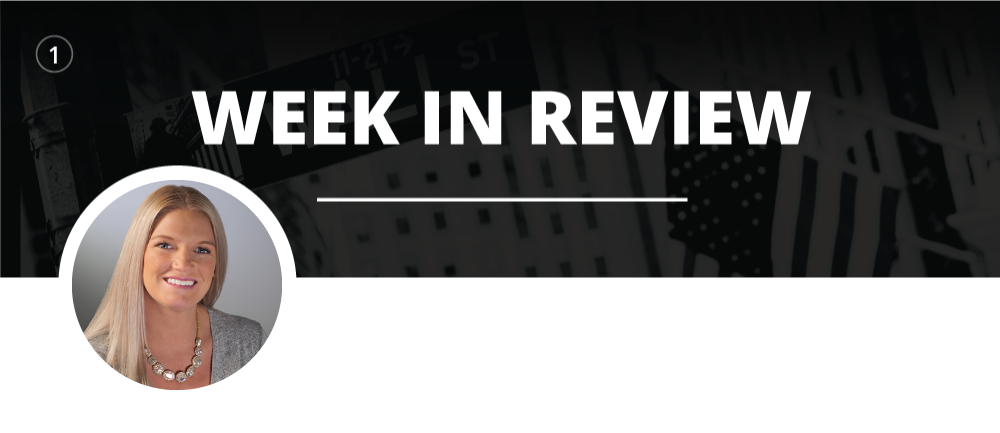
Axiom | Vol 271
How Transitory Is Inflation?

Meet The Axiom®’s Guest Editor: Suzy Lopez, CFP®
I’m Suzy Lopez, a Wealth Manager at Annex and I meet with Annex clients to review their investments and financial plan and help make sure they are on track to reach their personal goals as well as help them through transitional times such as retirement. I truly enjoy helping people, which is why I love working at Annex. The expertise of the entire team allows us to help our clients in so many different areas.
My husband and I are expecting a baby boy this November and we can’t wait to be parents! We spend a lot of our time with our families who we are lucky to have close by. In the summers you can usually find us boating in Milwaukee or Lake Geneva.
BACK TO TOP ↑

“I like the Axiom because it keeps people up-to-date on hot topics, law changes that may impact them, and gives them a quick synopsis of what happened in the markets last week. For people who are busy, it’s perfect! Five minutes of what you need to know and maybe some fun information as well and you’re on your way!“
– Guest Editor: Suzy Lopez, CFP® | Wealth Manager
________________________________________
How Transitory Is Inflation?
Annex Wealth Management’s Deanne Phillips and Todd Voit discuss two key factors impacting the transitory nature of inflation, and if relief is in sight.
BACK TO TOP ↑

Poll Recap: Does Labor Day mark the end of summer?
In this past week’s poll, we asked readers a question that caused some spirited responses: Does Labor Day mark the end of summer?
The responses were almost split, but a slight majority of respondents felt that yes, after Labor Day it’s time to think more about sweaters and grab a pumpkin spice latte.
The reality is, respondents on both sides of the argument would be correct. Labor Day is considered the “unofficial end of summer” while September 22 is the actual calendar-end of summer.
It may just be a matter of mindset. No matter where you live, you’ll find those who feel that first chill in the air and welcome the season change with open arms.
Many who live in the frigid North cling to the warmth as long as they can – perhaps because they know after a quick fall comes a long, cold winter. Meanwhile, in Southwest Florida, folks welcome fall so they can enjoy a warm respite from summer heat.
BACK TO TOP ↑

Check On Key 401(k) Plan Details
It’s always important to check in on your 401(k) plan from time to time. Your 401k is a great investment tool when planning for your future in and through retirement, so it’s important you are up to date on the specifics of your plan, so that it continues to work best for you!
Check your beneficiary. Depending on your retirement plan provider, you either have the ability to designate your beneficiary online or you may have to maintain a hardcopy on file with your employer. Either way, take a moment to verify that your beneficiary designation is up to date because nobody lives forever.
Review your investment allocation. When is the last time you carefully reviewed your 401(k) allocation? If you haven’t checked it in a while, there’s a decent chance that market fluctuations have caused your allocation to be out of whack. Any time you make adjustments to your 401(k) investments, be careful to verify whether you are changing the current balance in your account or if you are redirecting the investment of future contributions. It is not uncommon for people to confuse those two because most recordkeeping systems allow you to employ separate investment strategies for current balances versus future contributions.
Consider increasing your contributions. Momentum can be a tremendous asset when it comes to saving money, but it’s important to avoid complacency so if you haven’t reconsidered the amount you are saving toward retirement, now is as good a time as any. If the amount your saving doesn’t hurt at least a little bit, chances are you should increase your savings.
Reevaluate your strategy. Even though most 401(k) plans do offer a Roth feature, it is often significantly underutilized as compared to the traditional pretax approach to retirement savings. While Roth isn’t necessarily appropriate for everyone, it can’t hurt to do some thoughtful analysis to make sure that you are making the most of the planning tools available to you.
BACK TO TOP ↑

This week’s Ask Annex comes from Craig, who asks:
“I have 2 kids, a freshman and senior in high school, how do I prepare for college and retirement at the same time?”
___________________________
We asked Annex Wealth Management’s Randy Winkler, CFP®:
Whenever you fly, you’ll hear the flight attendant say, “In the unlikely event of a sudden loss of cabin pressure, oxygen masks will drop down from the panel above your head… secure your own mask before helping with your child’s.” It’s the same with the Retirement/College planning decision – secure your retirement before taking on the demands and concerns of college planning.
You may have heard the adage, “You can take a loan for college, but not for retirement.” Unless your retirement plan is for your kids to go to college, get a great job, and then host you as you live out your retirement years in their home, you’ll have to plan for retirement first.
As you meet with an advisor you can trust and get on track with your retirement plan, remember, helping your kids get to college doesn’t mean you must fully pay for their entire experience. Anything you can save will be a help. So, if your retirement plan is on track, and you have some additional cash flow you can invest for college, 529 plans are generally the best vehicle for college savings.
Any money invested in a 529 plan, and the growth on that investment, comes out tax free as long as it is used for qualified educational expenses. Some plans even offer tax deductions, depending on your state of residence and the plan you chose.
Planning of this magnitude often requires additional input – so I’d recommend finding an advisor you can trust to talk about the best plan. Wealth managers here at Annex will be able to illustrate the projected impact of these choices on your retirement plan, and based on that, you could also look at helping with college expenses.
Randy Winkler, CFP®
Financial Planning Manager
BACK TO TOP ↑

By nature, fee-only advisors minimize conflicts of interest. As a fee-only advisor, we act as a fiduciary, which means always putting our clients first. We don’t accept compensation based on product sales, sell proprietary investments, or accept payments to put certain funds in your accounts. Because of this, our sole compensation comes from a fee from clients only, rather than receiving payment from outside funds or providers.
On the other hand, fee-based advisers may charge fees for financial services as well as receive commissions based on the products they sell. Because fee-based or commission-based advisers generally don’t have a “duty to disclose” their method of compensation, it can be confusing to clients who may not fully understand when their fee-based advisers are working for commissions regarding financial advice they give or risks they may take.
We seek to avoid any confusion or perceived conflict of interest when it comes to our clients and the investment choices that we make at Annex. Because we receive nothing in return for the investment decisions we make or the products that we recommend to our clients, we work solely for the client’s best interests all the time.
BACK TO TOP ↑


KNOW THE DIFFERENCE MINUTE:
Walmart Looking To Add 20,000 Supply Chain & Logistics Jobs
KNOW THE DIFFERENCE MINUTE:
Unemployment Benefits Ending, Jobs Urgently Hiring
ANNEX RADIO
Part 1 | Financial Planning For Military Families: Retirement, Health Insurance & Benefits
BACK TO TOP ↑

Annex Wealth Management provides free workshops, open to the public, on key wealth management topics.
Each week, we provide links to register for upcoming events.
BACK TO TOP ↑